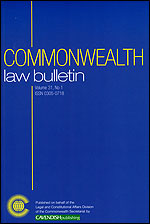A few weeks ago, I wrote a post on the story of a French couple who bypassed the French ban on surrogacy by resorting to a Californian surrogate mother. When the couple came back to France, French prosecutors took all available legal steps to deny them recognition of their parental status in France.
I am grateful to Kees Saarloos for forwarding me the judgment of the Paris court of appeal which ruled on the conflict issue on October 25, 2007. The judgment, however, is quite disappointing. It seems that French prosecutors were unable to analyze properly the conflict issues and thus to present a robust argumentation against the recognition of the parental status acquired in the U.S. This enabled the French court to reach a decision without truly addressing the issues. The judgment identified a few of them, but then stressed that they were not put forward by the plaintiff (i.e. the prosecutors), and that it did not need address them.
The judgment is more useful for the background it gives on what happened in California. The California Supreme Court had conferred the parental status to the French couple before the actual birth of the children, and ordered both the hospital in San Diego and the Californian Department of Public Health to mention the couple as the only parents on the hospital registry and the birth certificate. The couple could thus have sought recognition of a variety of foreign public acts. One was the Californian judgment, another was the birth certificate.
In a nutshell, the actual decision of the court can be summarized as follows:
As the plaintiffs have not challenged the recognition of either of these acts in France, their challenge of the transcription of the parental status on the French registries is inadmissible. The foreign acts govern.
The plaintiffs did not challenge the accuracy of the content of the transcription, but only the transcription itself. The issue of whether the couple was actually the parents of the children was therefore not before the court.
Finally, and in any case, failure to provide the couple with a parental status would result in the children having no parents legally speaking, which would not comport with the superior interest of the children.
One issue which is addressed (very) implicitly by the court is whether the dispute ought to have been decided by application of a law or of a decision. In other words, the court could have ruled that the issue at stake was one of choice of law. It would have then applied its choice of law rule in order to determine the law governing parenthood. Indeed, this was argued by the defendants. Instead, the court finds that the issue is one of recognition. The foreign acts govern, because they were recognised. Arguably, this could have been different if the accuracy of the content of the transcription had been challenged, and this is maybe what the court rules implicitly by noting that there was no such challenge.
Finally, the central issues of whether the foreign acts were contrary to French public policy and whether there had been a fraude à la loi are not addressed (on these ground for denial of recognition, see my previous post).
UPDATE: The French text of the decision can be found here (thanks to Esurnir). Various comments of the decision can be found on French blogs (see here and here) Finally, a personal reaction of the father of the children can be found here (in French). The couple has also created its own website.
 Dan Jerker B Svantesson (Bond University) has written a short article on “Conflict of Laws Issues Associated with an Action for Interference with Privacy” in the current issue of Computer Law and Security Report (C.L.S.R. 2007, 23(6), 523-528). The abstract reads:
Dan Jerker B Svantesson (Bond University) has written a short article on “Conflict of Laws Issues Associated with an Action for Interference with Privacy” in the current issue of Computer Law and Security Report (C.L.S.R. 2007, 23(6), 523-528). The abstract reads: Ranjit and Anil Malhotra have written a piece on “Inter-Country Adoptions from India” in the new issue of the
Ranjit and Anil Malhotra have written a piece on “Inter-Country Adoptions from India” in the new issue of the